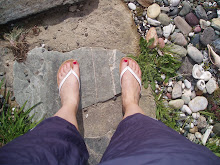When searching for background information on a topic, references are fundamental in lending the information credibility and allowing the reader to research the findings to their own extent. They assist in crediting the original sources with exclusive findings allowing the researcher to elaborate on these results with their own exploration into the domain in question (Referencite, 2009). Correctly referenced information lends new or contrary research viability that it may not have had initially.
Generally, references from a meta analysis are more reliable and thus a higher quality source of information. This is due to the enormity of the studies carried out and the overall consistency of the findings, reinforced by each relative study and summarized (Preiss, 1988).
References from sources that are not well known, difficult for other researchers to access, such as a first hand lecture, or a resource that is out of date e.g. an outdated textbook, are all of lower quality.
References need to display a date of publication, as this places the information into an historical context, which may be crucial according to how cutting edge the research is. For example: breakthrough research into the causes of breast cancer may not benefit from outdated research with ambiguous conclusions, as further discoveries may have been made since this time (Tyburski, 1997).
Ideally, references will allow the reader to investigate the idea proposed with ease and as a result be easy to access and understand. A way to sift out the quality references from the low quality involves briefly scanning the title to see whether it is clear cut or ambiguous sounding. A good quality reference will generally have a good title which hints at the research content, which will in turn generally be easy to follow and understand.
Also observing which disciplinary area the research is alluding to and how relevant this is to massage practise, for example we may have a quality reference from a psychology journal which correlates to our research findings or area of interest, yet is not from within the massage therapy sphere of research. This is known as inter-disciplinary referencing (regarding theories) or cross-disciplinary referencing (regarding the practise in question) which according to Mann (2005) allows for greater insight into the research question from differing points of view.
References:
Mann, T. (2005) The Oxford Guide to Library Research. US: Oxford University Press, p12.
Preiss, R. W. (1988) Meta-analysis: A Bibliography of Conceptual Issues and Statistical Methods. Annandale, VA: Speech Communication Association.
Referencite. (2009) Plagiarism. Retrieved on the 23rd March, 2009 from http://www.cite.auckland.ac.nz/index.php?p=plagiarism
Tyburski, G. (1997) How to Evaluate Information. Retrieved on the 2oth March, 2009 from http://www.virtualchase.com/quality/checklist.html

No comments:
Post a Comment